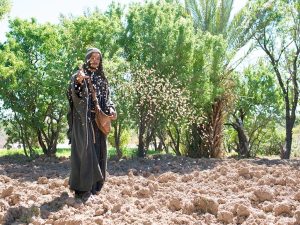 For the eighth year in a row, the Network of European Royal Residences invites its members, cultural and political institutions, historic houses and their audiences to celebrate heritage on social media on July 19, 2023! During one day, join us to discover the palaces of Europe, enter their history and their behind the scenes pictures!
For the eighth year in a row, the Network of European Royal Residences invites its members, cultural and political institutions, historic houses and their audiences to celebrate heritage on social media on July 19, 2023! During one day, join us to discover the palaces of Europe, enter their history and their behind the scenes pictures!
THE 2023 PALACE DAY WILL BE ABOUT ASTRONOMY, ASTROLOGY, MYTHOLOGY!
If astronomy is a recognised scientific discipline based on the observation of the stars, astrology and mythology lie in the domain of beliefs, religions and legends. However, within European royal re sidences, this blurring of astronomy, astrology and mythology is used by Princes to illustrate their power, in an allegorical way. The massive use of allegory in paintings and decorations served to highlight the monarch and his family. Just entering in a royal residence, you are sure to find that stars, gods, symbols are everywhere!
This July 19, 2023, we therefore invite the public, palaces, museums and all cultural institutions to discover the hidden symbols, decrypt the allegories, and share the mythological stories of palaces in Europe and around the world.
Source: Text: http://www.palaceday.com/ Image: unsplash.com
Note from the editor: No entry has been found for 2024, but PALACE DAY remains posted for July 19.

 To imagine this scene, we must know that the method used would have been what we call:
To imagine this scene, we must know that the method used would have been what we call:


 It is summertime and many people are longing for a break.
It is summertime and many people are longing for a break. give you rest.”
give you rest.” In the 1950s the United Nations established the Kiswahili language unit of United Nations Radio, and today Kiswahili is the only African language within the Directorate of the Global Communications at the United Nations. The United Nations General Assembly, through its resolution 71/328 of 11 September 2017, on multilingualism, welcomed implementation of a day dedicated to each of its official languages in order to inform and raise awareness of their history, culture and use, and encouraged the Secretary-General and institutions such as UNESCO to consider extending this important initiative to other non-official languages spoken throughout the world.
In the 1950s the United Nations established the Kiswahili language unit of United Nations Radio, and today Kiswahili is the only African language within the Directorate of the Global Communications at the United Nations. The United Nations General Assembly, through its resolution 71/328 of 11 September 2017, on multilingualism, welcomed implementation of a day dedicated to each of its official languages in order to inform and raise awareness of their history, culture and use, and encouraged the Secretary-General and institutions such as UNESCO to consider extending this important initiative to other non-official languages spoken throughout the world. HISTORY OF INTERNATIONAL PLASTIC BAG FREE DAY
HISTORY OF INTERNATIONAL PLASTIC BAG FREE DAY He tells us clearly:
He tells us clearly: Why Asteroid Day?
Why Asteroid Day?
 Each year on June 29th, the International Day of the Tropics raises awareness about various challenges that tropical nations face. It’s also a day to celebrate the extraordinary diversity of the Tropics.
Each year on June 29th, the International Day of the Tropics raises awareness about various challenges that tropical nations face. It’s also a day to celebrate the extraordinary diversity of the Tropics.